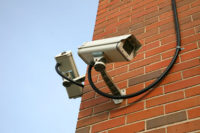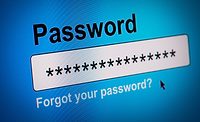Most Americans value privacy in their online and offline lives but feel they have little control over it, according to a new report by the Pew Research Center.
The majority of Americans believe it is important – often “very important” – that they be able to maintain privacy and confidentiality in commonplace activities of their lives. The report said that these views are especially pronounced when it comes to knowing what information about them is being collected and who is doing the collecting. These feelings also extend to their wishes that they be able to maintain privacy in their homes, at work, during social gatherings, at times when they want to be alone and when they are moving around in public.
When they are asked to think about all of their daily interactions – both online and offline – and the extent to which certain privacy-related values are important to them, clear majorities say these dimensions are at least “somewhat important” and many express the view that these aspects of personal information control are “very important.”
Survey results from early 2015 show:
- 93% of adults say that being in control of who can get information about them is important; 74% feel this is “very important,” while 19% say it is “somewhat important.”
- 90% say that controlling what information is collected about them is important—65% think it is “very important” and 25% say it is “somewhat important.”
At the same time, Americans also value having the ability to share confidential matters with another trusted person. Nine-in-ten (93%) adults say this ability is important to them, with 72% saying it is “very important” and 21% saying it is “somewhat important.”
Americans say they do not wish to be observed without their approval; 88% say it is important that they not have someone watch or listen to them without their permission (67% feel this is “very important” and 20% say it is “somewhat important”).
However, far fewer (63%) feel it is important to be able to “go around in public without always being identified.” Only 34% believe being able to go unnoticed in public is “very important” and 29% say it is “somewhat important” to them. In both cases, all adults, regardless of age or gender, express comparable views.
The findings above come from a survey conducted Jan. 27 to Feb. 16, 2015, among 461 adults on the GfK Knowledge Panel. It has a margin of error of plus or minus 5.8 percentage points. The findings cited below in the Summary section come from a separate survey of 498 adults on the same Knowledge Panel; that survey was conducted between Aug. 5 and Sept. 2, 2014, and has a margin of error of plus or minus 5.6 percentage points.
For all of the 11 entities asked about in the fall 2014 survey – from government agencies to credit card companies to social media sites – only small minorities say they are “very confident” the records maintained by these organizations will remain private and secure.
- Just 6% of adults say they are “very confident” that government agencies can keep their records private and secure, while another 25% say they are “somewhat confident.”
- Only 6% of respondents say they are “very confident” that landline telephone companies will be able to protect their data and 25% say they are “somewhat confident” that the records of their activities will remain private and secure.
- Credit card companies appear to instill a marginally higher level of confidence; 9% say they are “very confident” and 29% say they are “somewhat confident” their data will stay private and secure.
Online service providers are among the least trusted entities when it comes to keeping information private and secure. When asked about search engine providers, online video sites, social media sites and online advertisers, the majority felt “not too confident” or “not at all confident” that these entities could protect their data:
- 76% of adults say they are “not too confident” or “not at all confident” that records of their activity maintained by the online advertisers who place ads on the websites they visit will remain private and secure.
- 69% of adults say they are not confident that records of their activity maintained by the social media sites they use will remain private and secure.
- 66% of adults say they are not confident that records of their activity maintained bysearch engine providers will remain private and secure.
- 66% say they are not confident that records of their activity collected by the online video sites they use will remain private and secure.
When asked how much control they feel they have over how much information is collected about them and how it is used in their everyday lives, only a small minority of Americans say they have “a lot” of control over their personal data collection and its use.
When thinking about a range of activities that might take place on a typical day, 9% say they feel they have “a lot” of control over how much information is collected about them and how it is used, while 38% say they have “some control.” Another 37% feel they have “not much control,” and 13% feel they personally have “no control at all” over the way their data is gathered and used.
At the time of the mid-2014 survey, the vast majority of respondents – 91% – had not made any changes to their internet or cellphone use to avoid having their activities tracked or noticed. Only 7% reported that they had made these kinds of changes in “recent months.”
At the same time, a much larger group had engaged in some everyday obfuscation tactics and privacy-enhancing measures. These activities were not necessarily in direct response to news of government monitoring programs, but, rather, represent a set of measures that respondents may have engaged in out of broader concerns about their personal info. Some of the more common activities include:
- Clearing cookies or browser history (59% have done this).
- Refusing to provide information about themselves that wasn’t relevant to a transaction (57% have done this).
- Using a temporary username or email address (25% have done this).
- Giving inaccurate or misleading information about themselves (24% have done this).
- Deciding not to use a website because they asked for a real name (23% have done this).
This survey included somewhat more expansive questions about advanced privacy-enhancing measures such as the use of proxy servers, virtual private networks and encryption across a variety of communications channels, following up on findings reportedearlier this year. However, even with comparatively broader language, just one-in-ten Americans said they had adopted these more sophisticated steps to shield their information:
- 10% of adults say they have encrypted their phone calls, text messages or email.
- 9% say they have used a service that allows them to browse the Web anonymously, such as a proxy server, Tor software, or a virtual personal network.
There is wide variation across the length of time that respondents feel is reasonable for businesses and other organizations to store their data. Additionally, there is considerable variance on their views depending on the kind of organization that retains the records of the activity. In general, and even though it may be necessary to provide certain functionality, people are less comfortable with online service providers – such as search engine providers and social media sites – storing records and archives of their activity.
- 50% of adults think that online advertisers who place ads on the websites they visit should not save records or archives of their activity for any length of time.
- 44% feel that the online video sites they use shouldn’t retain records of their activity.
- 40% think that their search engine provider shouldn’t retain information about their activity.
- 40% think that social media sites they use shouldn’t save data about their activity.
At the other end of the spectrum, the vast majority of adults are comfortable with the idea that credit card companies might retain records or archives of their activity. Just 13% think that credit card companies “shouldn’t save any information.”
Those who have had the most exposure to information about the government surveillance programs also have some of the strongest views about data retention limits for certain kinds of organizations. These differences are particularly notable when considering social media sites. Among those who have heard “a lot” about the government collecting communications data as part of anti-terrorism efforts, 55% say that the social media sites they use should not save any information regarding their activity, compared with 35% of those who have heard “a little” about the government monitoring programs.
When asked to think about the data the government collects as part of anti-terrorism efforts, 65% of Americans say there are not adequate limits on “what telephone and internet data the government can collect.”1 Just 31% say they believe that there are adequate limits on the kinds of data gathered for these programs. The majority view that there are not sufficient limits on what data the government gathers is consistent across all demographic groups. Those who are more aware of the government surveillance efforts are considerably more likely to believe there are not adequate safeguards in place; 74% of those who have heard “a lot” about the programs say that there are not adequate limits, compared with 62% who have heard only “a little” about the monitoring programs.
In the current survey, the majority of adults (55%) said that people should have the ability to use the internet completely anonymously for certain kinds of online activities. Another 16% do not think people should be able to remain anonymous when they are online; 27% said they don’t know.
Men are more likely than women to think people should be able to engage in certain online activities anonymously (61% vs. 49%), but support for internet anonymity does not vary by age. Education is a predictor, but income is not; adults with at least some college education are significantly more likely than those who have not attended college to believe that people should have the ability to use the internet anonymously (66% vs. 40%).
Many believe they are particularly vulnerable to people or organizations who have a motive to learn private details about their past. When considering how difficult it would be for a motivated person or organization to learn private details about their past that they would prefer to keep private, 64% of adults said it would be “not too” or “not at all” difficult for a motivated person or organization to uncover that sensitive information. Just 20% felt it would be “very” or “somewhat” difficult.
Men and women report similar responses, but those ages 50 and older (76%) are significantly more likely to believe it would be “not too” or “not at all difficult” when compared with those under the age of 50 (54%). Similarly, those with a college degree are more likely than those who have not attended college to feel more exposed (70% vs. 58%).
Read the full report at http://www.pewinternet.org/2015/05/20/americans-attitudes-about-privacy-security-and-surveillance/



